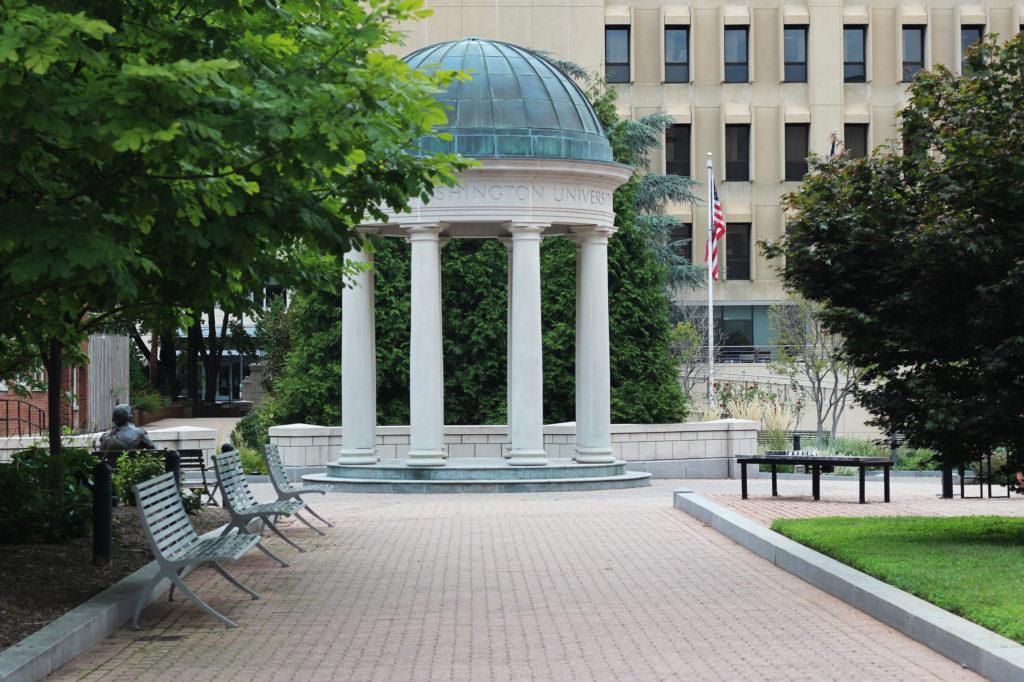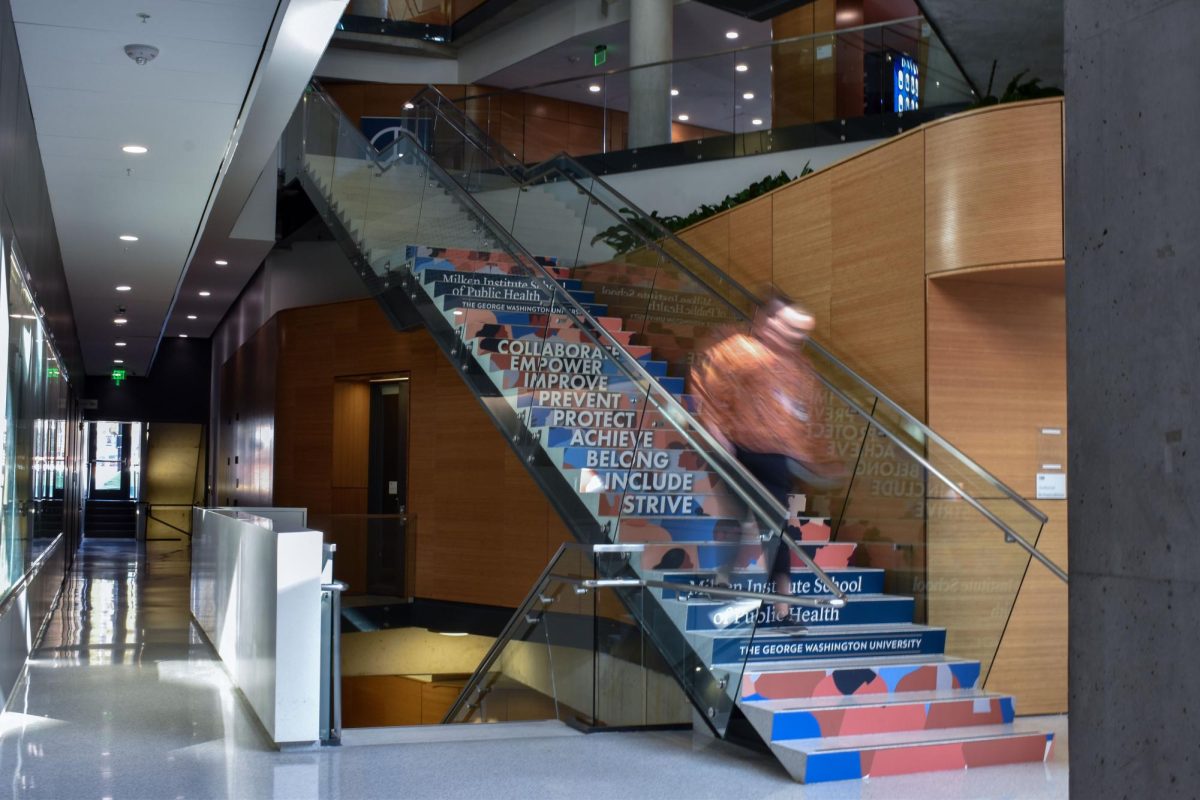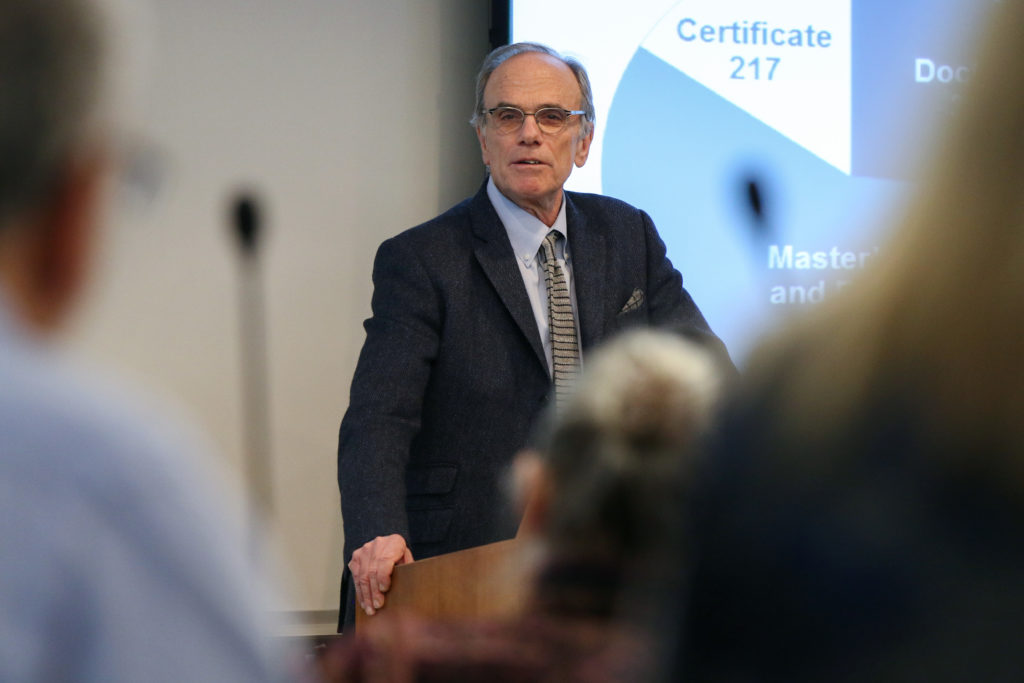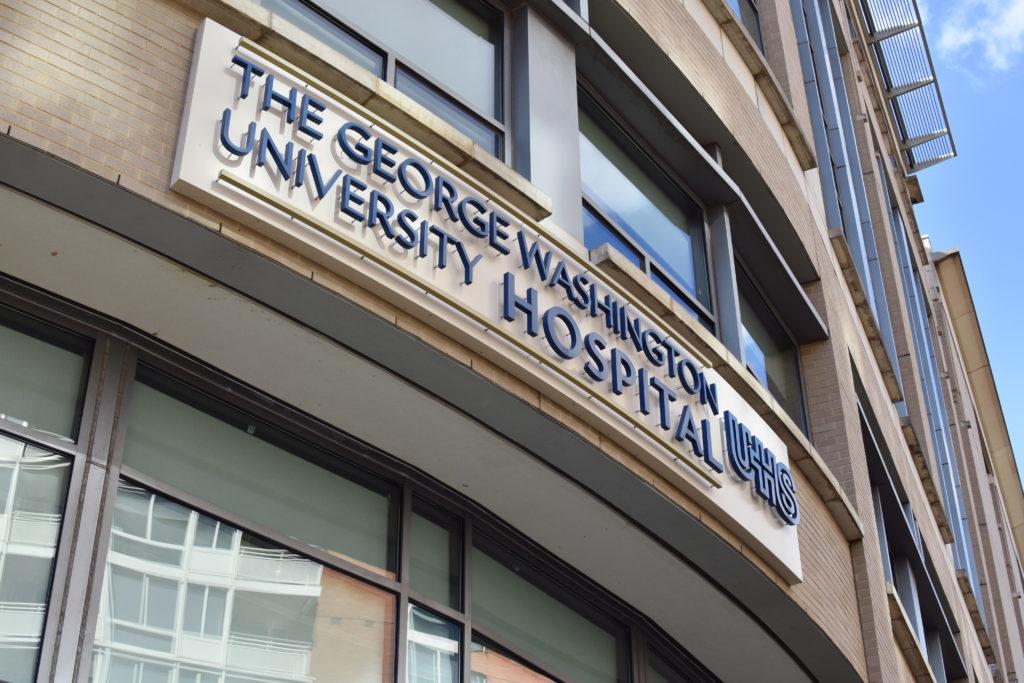Updated: Dec. 30, 2021 at 8:08 p.m.
Students will be required to quarantine until they receive two negative COVID-19 tests when they return to campus next month, officials said.
Scott Burnotes, the vice president for safety and facilities, said in an interview that students must check in at the University Student Center upon moving in before beginning a quarantine period lasting until they receive results from two negative PCR tests, which should be scheduled three days apart. Officials also said they are considering offering COVID-19 tests seven days a week if needed, and they will increase the number of people staffing the testing operation to deal with the influx of testing appointments next month.
Administrators announced last week that GW will hold classes online for at least the first week of the spring semester and moved up the deadline for GW community members to receive a COVID-19 booster shot from Feb. 1 to Jan. 10 to combat the spread of the Omicron variant.
Burnotes said seating will be restricted at dining areas on campus, like District House and the student center, during GW’s remote learning period and students will be instructed to eat in their residence hall rooms instead. He said officials expect higher rates of COVID-19 transmission among the University community as students return to campus.
“We’re hoping everyone will play their part and understand that while it’s a little bit of an inconvenience to go back up to their room to eat, it is helping us maintain that safe environment and the numbers to decrease,” Burnotes said.
The District currently has the highest average rate of daily COVID-19 cases and hospitalizations in the United States, and GW and D.C. officials have tightened restrictions in response. Earlier this month, Mayor Muriel Bowser reinstated the city’s indoor mask mandate and announced that all residents will be required to have proof of vaccination to enter all restaurants, bars, gyms and entertainment venues beginning Feb. 15.
Officials announced last week that residence halls will reopen to students Jan. 8 as originally scheduled, despite the remote learning period.
Burnotes said the University has “significantly increased” its isolation capacity for students who test positive with additional residential spaces and beds to prepare for higher COVID-19 transmission rates. He said the return of in-person events, which will be canceled during the remote learning period after officials suspended them in mid-December, will depend on the University community’s transmission rate and the District’s regulations.
“We will continue to stress the importance of good universal COVID protocols such as the masking and moving to a grab-and-go dining concept until we can see the metrics improve,” Burnotes said.
Interim Provost Chris Bracey said in an email to students last week that the Lerner Health and Wellness Center will be closed until Jan. 18 during the remote learning period, and several campus libraries will have restricted access during the first week of the new year.
Gelman Library will remain closed to patrons until Jan. 10 with book pickup and scanning services still available, according to the University’s website. Bracey’s email states one student at a time may occupy study rooms where masking compliance will be “rigorously monitored” during the remote learning period.
Eckles and the Virginia Science and Technology Campus libraries will also open Jan. 10, Jacob Burns Law Library will open Jan. 9 and Himmelfarb Health Sciences Library will open Jan. 2, according to GW’s website.
In-person clinical programs may continue with limited learning activity, according to Bracey’s email. The email states lab and shared areas for research may be filled up to half their capacity, and access will be restricted for undergraduate students, who must receivce approval to work in the labs “on a very limited basis.”
Ray Lucas, GW’s COVID-19 coordinator, said officials will consider expanding GW’s testing capacity next month with appointments available seven days a week and additional personnel working in the University’s testing lab.
He said officials will consider returning to in-person classes when GW’s COVID-19 transmission and positivity case rates return to the same levels as before the outbreak of the Omicron variant. He said an extension of the remote learning period will depend on whether cases rise in the District and among the University community at the beginning of the spring semester.
“We set the Jan. 18 date as sort of a best guess, but we’re continually monitoring that,” Lucas said in an interview. “I don’t think we’re going to go sooner than that. If we think we have to go longer, we’ll certainly give the campus ample notice.”
Lucas said officials hope the current surge in cases will subside between late January and early February based on the course of the variant’s spread in South Africa. He said hospitalizations have generally decreased recently nationwide with positive patients experiencing fewer severe health consequences from the coronavirus.
He said officials might struggle to manage the University community’s contract tracing and clear up isolation housing if the COVID-19 positivity rate exceeds 2 percent and the transmission rate surpasses 1.2 percent on campus.
“Even though we were pushing off in-person learning until later in the month, we really wanted the residential students to come back according to the original timetable so that they could be as successful as possible in this virtual learning environment that we’re starting with,” he said.
Lucas said the remote learning period will help students avoid missing classes and work and allow officials to focus on monitoring COVID-19 surveillance testing, quarantines and isolations on campus.
“I think getting that group ethos among our campus that we’re all in this together and that we all need to be careful is so important now and more so than it ever has been throughout the pandemic,” Lucas said.
This post was updated to correct the following:
The Hatchet incorrectly reported that GW will begin offering COVID-19 testing seven days a week. Officials will consider offering testing seven days a week if needed. We regret this error.








